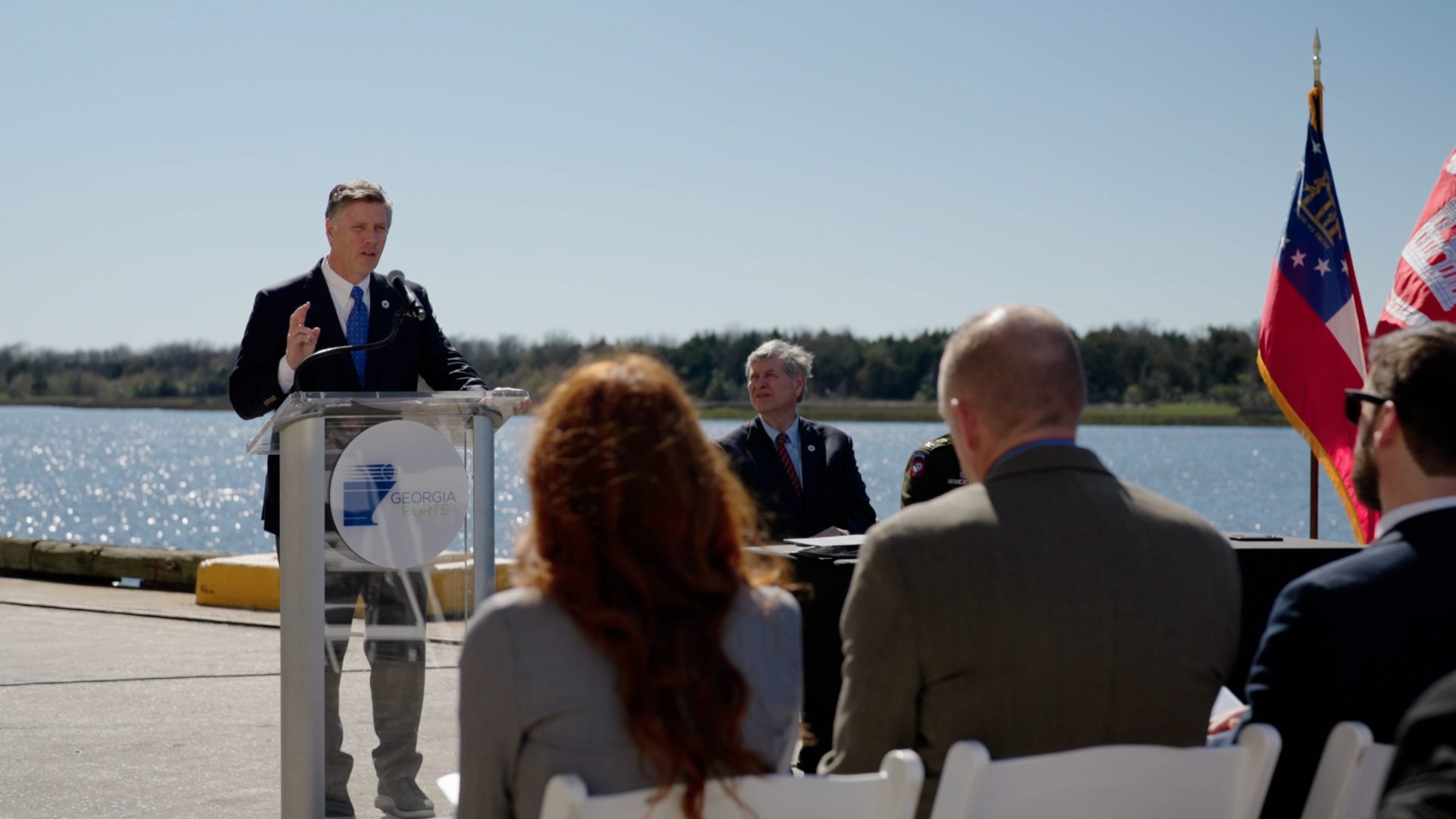Representatives from the Georgia Ports Authority and the U.S. Army Corps of Engineers, Savannah District, met at Mayor’s Point Terminal at the Port of Brunswick Monday to sign an agreement initiating the design phase for the Brunswick Harbor Modifications Project.
The project involves widening and realigning the existing navigation channel in specific locations to reduce transportation cost inefficiencies for roll-on/roll-off vessels coming to Brunswick. It was approved by the Chief of Engineers on March 11, 2022, and authorized for construction in the Water Resources Development Act of 2022.
“We value our partnership with the Georgia Ports Authority and continue to work closely with them here in Brunswick,” said Col. Joseph Geary, USACE, Savannah District commander. “This agreement advances a project that serves not only the interests of the state and the region, but it yields economic benefits nationwide – and we’re proud to be part of that.”
According to the agreement, the design for this project includes expanding the Cedar Hammock Range bend widener by a maximum of 321 feet on the north side, to a length of approximately 2,700 feet and to a depth of -36 feet Mean Lower Low Water (MLLW) plus two feet of allowable over-depth; expanding the width of the turning basin at Colonel’s Island Terminal by a maximum of 395 feet along approximately 4,100 feet along South Brunswick River and to a depth of -36 feet MLLW plus two feet of allowable over-depth; the creation of a vessel meeting area at St. Simons Sound near the Brunswick Harbor entrance channel; and relocating the north toe of the existing channel approximately 800 feet to the north along a length of approximately 10,000 feet.
“The channel improvements will allow ocean carriers to serve the Port of Brunswick with greater safety and efficiency,” said Griff Lynch, executive director of the Georgia Ports Authority. “Coupled with our on-terminal expansion efforts, the harbor project will help meet the needs of Georgia’s growing automotive and agricultural business sectors.”
Trade through Georgia’s ports also helps to support government services, yielding $7.4 billion in federal taxes, $2 billion in state taxes, and $1.8 billion in local taxes annually. This project will alleviate tidal restrictions and increase efficiency, which produces economic benefits. The project is expected to generate nearly $3M in average annual benefits and provide roughly $4 in benefit for every $1 invested.
Georgia’s deepwater ports and inland barge terminals support more than 561,000 jobs throughout the state annually and contribute $33 billion in income, $140 billion in revenue and $3.8 billion in state and local taxes to Georgia’s economy.
